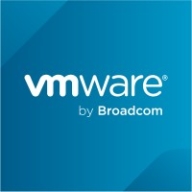

Trend Micro Deep Security and VMware Carbon Black Endpoint compete in the endpoint protection category, each offering unique advantages. Trend Micro Deep Security appears to have the upper hand with its seamless cloud integration and virtual patching capabilities, while VMware Carbon Black Endpoint excels in threat hunting and detailed process analysis.
Features: Trend Micro Deep Security offers an agentless architecture, integration with cloud services like AWS and Azure, and virtual patching for proactive security. VMware Carbon Black Endpoint enhances threat detection with its cloud-based architecture, allows for in-depth threat analysis, and provides a unified management interface for VMware products.
Room for Improvement: Trend Micro Deep Security could improve database integration, real-time anti-malware support for Amazon Linux, and enhance macOS support. The initial setup complexity and API support for more products also need addressing. VMware Carbon Black Endpoint users suggest more flexible licensing, better integration with security tools, and improved on-premise deployment support alongside enhanced alerts and reporting features.
Ease of Deployment and Customer Service: Trend Micro Deep Security is versatile, supporting on-premises, public, private, and hybrid cloud deployments with praised technical support, although faster resolution is desirable. VMware Carbon Black Endpoint is easily deployable across environments and offers strong customer service, particularly for enterprise accounts, despite needing improved initial guidance and integration.
Pricing and ROI: Trend Micro Deep Security's pricing is considered high, with licensing based on modules and server hosts, though it is seen as cost-effective due to feature comprehensiveness. VMware Carbon Black Endpoint offers competitive pricing with flexible models, including monthly billing, appealing for larger implementations. Both solutions justify their investment through reduced risk and favorable ROI despite upfront costs.
The management console is very useful and easy to operate, allowing policy deployment in a minimal amount of time.
It adds value by providing centralized control over servers and endpoints.
If the customer is interested in technical capabilities, we demonstrate the tools, setup, implementation, and their working.
Whenever I raise a ticket, whether critical or high priority, their team responds immediately, often over calls, and works towards closing the request with the highest priority.
They have very professional engineers, and they often respond effectively.
A dedicated support engineer will come in within three hours.
Trend Micro Deep Security is highly scalable.
In most organizations, they are using a mix of these security solutions.
You can install it on a script basis for Linux and Windows.
It has been extremely stable throughout our usage, with no major disturbances.
Trend Micro Deep Security is very stable and provides protection at all times without issues.
We believe that software works fine until it is patched, managed, or monitored by the IT teams.
User experience improvement is most crucial, along with enhancements in policy management and the accuracy of the IPS, IDS features for real-time protection.
Additionally, the product is overpriced, which makes it difficult to sell to many customers.
The user interface could be more user-friendly, as navigation sometimes requires familiarity with the console.
We give a fair comparison of all the products, and give them clear insights of the products, which makes it helpful for the customer to make a final decision to purchase the license or product.
Trend Micro Deep Security is considered overpriced, which poses a challenge in selling it to many customers.
The pricing is moderate, not expensive or very cheap.
It has multiple security layers, including anti-malware, intrusion prevention, integrity monitoring, web reputation, application control, firewall, and log inspection.
It is well-suited for state government customers who require a complete sense of security.
Trend Micro Deep Security offers valuable features such as virtual patching, which allows me to manage server downtime challenges by taking care of threats.
| Product | Market Share (%) |
|---|---|
| Trend Micro Deep Security | 43.2% |
| Sophos Virtualization Security | 16.9% |
| Entrust CloudControl | 15.3% |
| Other | 24.599999999999994% |
| Product | Market Share (%) |
|---|---|
| VMware Carbon Black Endpoint | 1.8% |
| Microsoft Defender for Endpoint | 9.9% |
| CrowdStrike Falcon | 7.9% |
| Other | 80.4% |


| Company Size | Count |
|---|---|
| Small Business | 36 |
| Midsize Enterprise | 24 |
| Large Enterprise | 42 |
| Company Size | Count |
|---|---|
| Small Business | 31 |
| Midsize Enterprise | 9 |
| Large Enterprise | 30 |
Trend Micro Deep Security is a comprehensive solution for endpoint security and server protection, which prevents ransomware attacks and unauthorized access attempts. Its valuable features include tracing back attacks, antivirus protection, endpoint detection and response, firewall-based solution, threat detection, predictive machine learning and AI monitoring, VPM, virtualization, and sandboxing.
The solution is easy to use, scalable, stable, and reliable, with good technical support. It has helped organizations perform well against malware and vulnerabilities, provide patching from the Protection Cloud, and improve their security posture.
Trend Micro Deep Security Features
Trend Micro Deep Security has many valuable key features. Some of the most useful ones include:
Reviews from Real Users
Trend Micro Deep Security stands out among its competitors for a number of reasons. Two major ones are its robust data and loss prevention feature and its patch management, which saves users money. PeerSpot users take note of the advantages of these features in their reviews:
One PeerSpot reviewer, a Senior Security Advisor at a healthcare company, writes, “DLP, Data Loss Prevention, and the complexity of how we manage the console and how this client, or this tool, will notify us when there is something going wrong within the server and endpoint, is good.”
Nadeem S., CEO at Haniya Technologies, notes of the solution, “Patch management is most valuable. The major selling point of Deep Security is that it is based on the cloud. Deep Security is for the servers and databases of data centers, and generally, for patch management, you have to shut down the machines, and then you have to restart them. So, they need shutdown time, which is a cost.”
VMware Carbon Black Endpoint enhances endpoint security with its robust EDR, threat detection, and live response features. The cloud-based architecture supports remote management and easy setup while behavioral monitoring and dynamic grouping minimize security risks.
VMware Carbon Black Endpoint is designed for those seeking comprehensive endpoint protection. With its cloud-based deployment, organizations experience streamlined remote control and simplified rollout processes. Its behavioral monitoring, incident response capabilities, and firewall integration deliver advanced security measures. Although it addresses many security challenges, areas like manual alert management, on-demand scanning, and integration with systems like AlienVault USM require refinement. Improved UI, EDR components, and flexible pricing models would enhance user satisfaction. On-premise deployment infrastructure and compatibility issues with some operating systems need attention. Enhanced reporting, container security, and multi-tenancy support are also essential for fulfilling industry needs. AI-driven analysis and threat isolation empower companies by fostering proactive management.
What are the key features of VMware Carbon Black Endpoint?
What benefits should users look for when evaluating VMware Carbon Black Endpoint?
VMware Carbon Black Endpoint finds extensive application in industries focused on stringent security requirements. Managed security service providers leverage its capabilities to deliver comprehensive protection to multiple clients worldwide. Organizations use it primarily for antivirus protection and incident management, integrating it with their existing security frameworks to strengthen endpoint visibility and real-time threat prevention. Its advanced detection and application control features make it a preferred choice in industries that prioritize robust security measures. However, it requires improvements in terms of system compatibility and customization flexibility to better serve diverse industry environments.
We monitor all Virtualization Security reviews to prevent fraudulent reviews and keep review quality high. We do not post reviews by company employees or direct competitors. We validate each review for authenticity via cross-reference with LinkedIn, and personal follow-up with the reviewer when necessary.